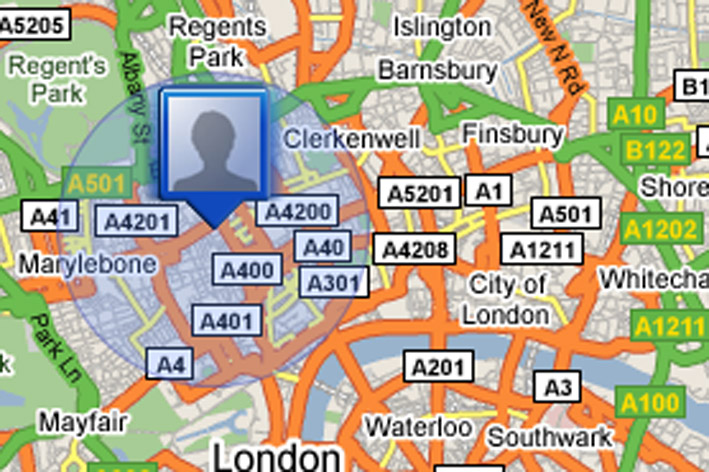Five business uses for Google’s Latitude
It might be best fitted for finding your friends, but there are some valid business uses for Google's latest launch, the location-based Latitude.


Google's Latitude service, which lets users share their location with the friends they choose, could have wider possibilities for business.
The new service has attracted criticism from privacy groups, with some accusing it of technologically-advanced stalking. The official Google explanation doesn't make it sound less creepy. "Once you've opted in to Latitude, you can see the approximate location of your friends and loved ones who have decided to share their location with you," said Vic Gundotra, vice president of engineering for the Google mobile team, on Google's blog.
"So now you can do things like see if your spouse is stuck in traffic on the way home from work, notice that a buddy is in town for the weekend, or take comfort in knowing that a loved one's flight landed safely, despite bad weather."
But it's not just a handy solution for tracking misplaced children or stalking spouses. Like most tech, it can also be applied to the business world. All the examples listed here are available using other solutions, but usually at a significant cost, meaning small and medium sized businesses could finally get the chance to benefit from location-based services (LBS).
Tracking employees
Unsurprisingly, this raises some valid privacy concerns, but we're not suggesting a company fit all their employees with tracking devices to see if they're bunking off work or spending too long in the pub at lunch.
Instead, this offers cheap, basic security for field-based workers, letting their office-bound counterparts know exactly where they are at all times. Existing technology already offers this, but can cost in the thousands of pounds though it does bring other features with it.
Sign up today and you will receive a free copy of our Future Focus 2025 report - the leading guidance on AI, cybersecurity and other IT challenges as per 700+ senior executives
Tracking missing equipment
Depending on settings, Latitude could be used as a basic equipment-tracking device some have suggested tying an old BlackBerry to a dog in case it runs away. But a mobile phone left behind in a van that's subsequently stolen could offer some help in tracking where it's been taken, assuming the thieves aren't Google savvy enough to switch it off
Quick and easy dispatch
Smaller companies with a mobile workforce could use the system as a basic dispatch control method. Knowing where one of your plumbers is could help decide where to send him next, while a delivery van stuck in traffic could be sent advice on a better route via text.
Location-based advertising
Clearly, this is where Google would like to take this service. No matter where you are, it can target its search and advertising to your location. While on one hand this could be annoying, it makes it easier to find local businesses - assuming they're listed on Google Maps.
Search savvy businesses can make sure the person walking down their street can find them without having to do a whole lot of extra work. It's like having one of those sandwich-board guys standing out front waving people in, but without having to invest in the sign
Unified communications
Aside from the location aspect, there's another tool on offer in Latitude. It links up SMS, instant messaging and phone numbers for ready access and can be used via iGoogle at a desktop computer.
While this doesn't quite meet the spec list for most unified communications systems, it does mean a coworker could see that you were in the office and know to call you at your desk and if not, send a text to your mobile or stick to email, instead.
Freelance journalist Nicole Kobie first started writing for ITPro in 2007, with bylines in New Scientist, Wired, PC Pro and many more.
Nicole the author of a book about the history of technology, The Long History of the Future.
-
 Microsoft unveils Maia 200 accelerator, claiming better performance per dollar than Amazon and Google
Microsoft unveils Maia 200 accelerator, claiming better performance per dollar than Amazon and GoogleNews The launch of Microsoft’s second-generation silicon solidifies its mission to scale AI workloads and directly control more of its infrastructure
-
 Infosys expands Swiss footprint with new Zurich office
Infosys expands Swiss footprint with new Zurich officeNews The firm has relocated its Swiss headquarters to support partners delivering AI-led digital transformation

